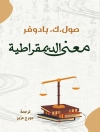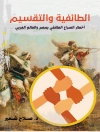A free ebook version of this title is available through Luminos, University of California Press’s Open Access publishing program. Visit www.luminosoa.org to learn more .
Since the end of the Cold War, globalization—the process and the idea—has been reshaping the world. Global studies scholarship has emerged to make sense of the transnational manifestations of globalization: economic, social, cultural, ideological, technological, environmental, and postcolonial. But a series of crises in the first two decades of the twenty-first century has put the neoliberal globalization system of the 1990s under severe strain.
Are we witnessing a turn toward “deglobalization, ” intensified by the COVID-19 pandemic and the war in Ukraine or a moment of “reglobalization, ” spearheaded by digital technology? The contributors to this book employ transdisciplinary research to assess past developments, the current state, and future trajectories of globalization in light of today’s dynamics of insecurity, volatility, and geopolitical tensions.
关于作者
Manfred B. Steger is Professor of Sociology at the University of Hawai‘i at Mānoa and author of Globalization: A Very Short Introduction. Roland Benedikter is Co-Head of the Center for Advanced Studies at Eurac Research in Bolzano, Italy and UNESCO Chair in Interdisciplinary Anticipation and Global-Local Transformation. He is author of Religion in the Age of Re-Globalization and coeditor of Re-Globalization: New Frontiers of Political, Economic and Social Globalization. Harald Pechlaner is Head of the Center for Advanced Studies at Eurac Research. He is also Professor, Chair of Tourism, and Head of the Centre for Entrepreneurship at the Catholic University of Eichstätt-Ingolstadt, Germany. Ingrid Kofler is Research Fellow and Assistant Professor of Sociology at the Free University of Bozen-Bolzano, Italy.












